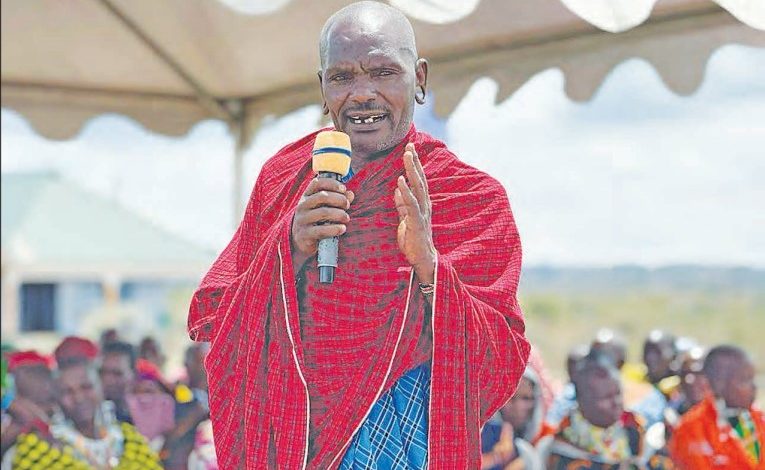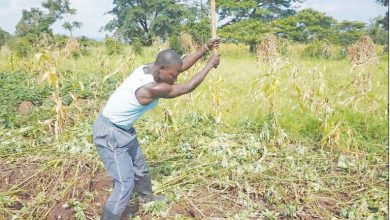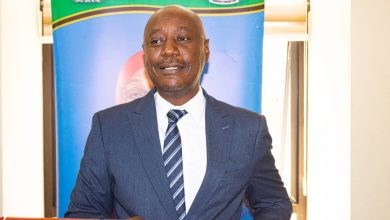Shaping Tanzania’s liberal future with FNF

IN a world grappling with challenges to democracy, human rights and gender equality, the Friedrich Naumann Foundation for Freedom (FNF) stands as a beacon of hope.
Rooted in liberalism and inspired by the German thinker Friedrich Naumann, this political foundation champions freedom, responsibility, the rule of law and human rights. Through a strategic blend of political education and international dialogue, FNF has committed itself to nurturing liberal democracy, vibrant market economies and pluralism worldwide.
Nowhere is this more evident than in Tanzania, where FNF’s decades-long engagement has transformed communities, uplifted women and girls, and fostered sustainable change. At its core, the FNF pursues a bold agenda: To promote liberal values by advancing political and civic education, strengthening democratic governance and fostering international cooperation.
The FNF East Africa representative, Ms Veni Swai says by organising seminars, conferences and publishing educational materials, FNF equips citizens and political actors with knowledge and skills critical for building accountable leadership and robust civil society institutions.
Key among FNF’s efforts is its unwavering commitment to human rights and press freedom, understanding that democracy thrives only where voices are free and protected.
Supporting liberal youth and women’s movements also forms a cornerstone of its work, helping to cultivate future generations of leaders who champion equality and justice. Ms Swai states that integral to FNF’s mission in Tanzania is the empowerment of women and girls.
Recognising their pivotal role as stakeholders, FNF has provided them with training, study tours and workshops that build skills, confidence and networks. These programmes inspire women and girls to take active roles in their communities, champion social causes and become influential voices of change.
ALSO READ: 2025 Election: Breakthrough for Women
She cited that one shining example is Sauti Yangu, an initiative born from a group of 25 girls trained by FNF in leadership and human rights. Sauti Yangu gave children a platform to speak out against child abuse, collaborating with police gender desks and reaching multiple wards in Dar es Salaam.
Extending their impact, the group worked in Kilimanjaro, advocating for girls’ rights in schools across Siha, Rombo and Same districts. Sauti Yangu’s work blossomed into the flagship Safe Community for Development project in Siha district, run in partnership with KWIECO.
This project has raised awareness against Female Genital Mutilation (FGM), a harmful cultural practice and championed girls’ education as a pathway to safety and empowerment. FNF’s influence in Tanzania spans over 30 years, touching the lives of women across diverse sectors.
Over 50 women journalists have benefitted from FNF’s networking opportunities, skill-building workshops and mentorship programmes. Many have connected with colleagues from Kenya, Zimbabwe, Senegal, South Africa, Malawi, Germany and beyond, sharing experiences and learning global best practices. Some even participated in media study tours in Germany and Geneva, gaining firsthand insights into international media landscapes and human rights advocacy.
One of the beneficiaries, Ms Chelu Matuzya says through her involvement with the Friedrich Naumann Foundation (FNF), she gained invaluable knowledge and experience that have significantly shaped her journalism career.
“I had the opportunity to meet and engage with journalists and decision-makers from diverse professional backgrounds, both within the country and internationally. The networking and exchange programmes facilitated by FNF allowed me to share knowledge, foster cross-border collaborations and gain a deeper understanding of the global challenges facing journalism today such as disinformation, political pressure and media monopolies,” Ms Matuzya says.
The Foundation has also empowered women in political parties, honing their leadership and communication skills to effectively advance their agendas. Notable alumni include Dorothy Semu, leader of ACT Wazalendo, Fatma Fereji from Zanzibar and Shangwe Ayo, women who have ascended to parliamentary and party leadership roles after FNF’s support.
Among FNF’s most profound achievements is its work with Maasai women engaged in the practice of FGM as traditional Ngaribas.
Over 3,000 women have been reached through initiatives that emphasise cultural sensitivity and economic alternatives to harmful traditions. By training these women in business development, FNF has helped them establish legal, sustainable livelihoods surpassing the income they previously earned from FGM practices.
This transformation is about more than economics. It represents a shift in mindset and empowerment, as these women now stand as ambassadors of change, actively protecting girls from abuse and fostering healthier, safer communities.
FNF’s long-term experience in Tanzania highlights the importance of recognizing the unique context of each community.
ALSO READ: Celebrating impacts of China- Zanzibar health partnership
While challenges like FGM and child marriage persist particularly among Maasai and some other groups the foundation advocates for respectful dialogue and continuous education rather than broad-brush judgments.
The persistence of practices like FGM stems from deep cultural roots and economic incentives, making change difficult but not impossible. Alternative rites of passage, supported by education and healthcare access, are gaining ground. However, pockets of resistance remain, underscoring the need for ongoing engagement and support.
The struggle for women’s equal leadership is a global phenomenon, reflected in subtle societal biases from the persistent reminders of Kamala Harris’s gender during her U.S. presidential bid, to the affectionate yet gendered labels for leaders like Angela Merkel. Tanzania’s journey mirrors this worldwide challenge, where women’s voices and authority are often questioned or diminished.
FNF’s work is a crucial part of overcoming these barriers by building women’s capacities, expanding networks and fostering environments where female leaders can thrive. For over three decades, the Friedrich Naumann Foundation for Freedom has played a pivotal role in Tanzania’s democratic and social landscape.
By advancing liberalism, empowering women and girls, advocating for human rights and engaging with communities in culturally respectful ways, FNF continues to inspire hope and progress. The foundation’s holistic approach not only addresses immediate challenges but plants the seeds for a freer, more equitable future one where liberty and responsibility walk hand in hand.





